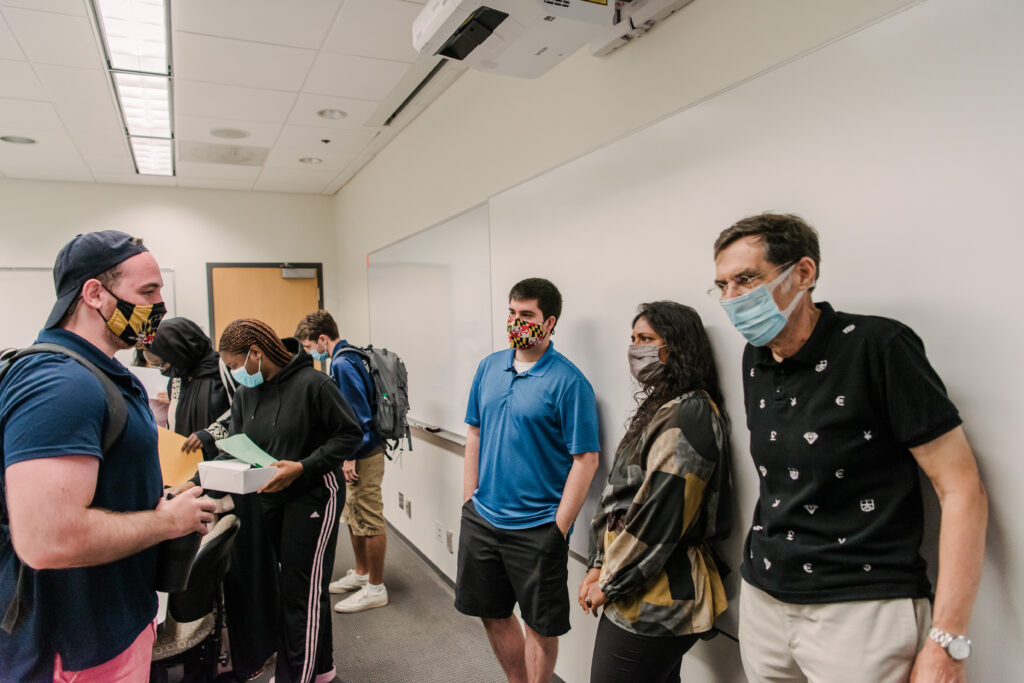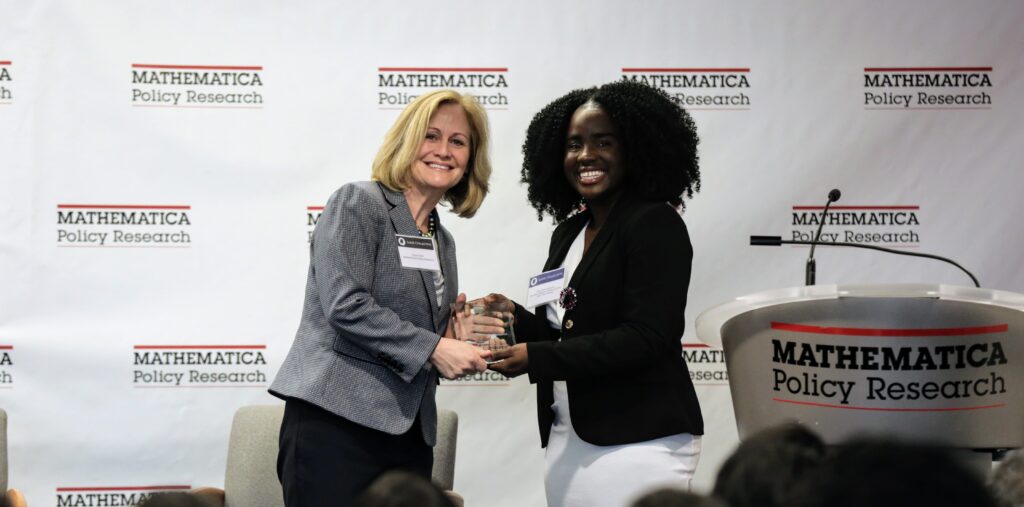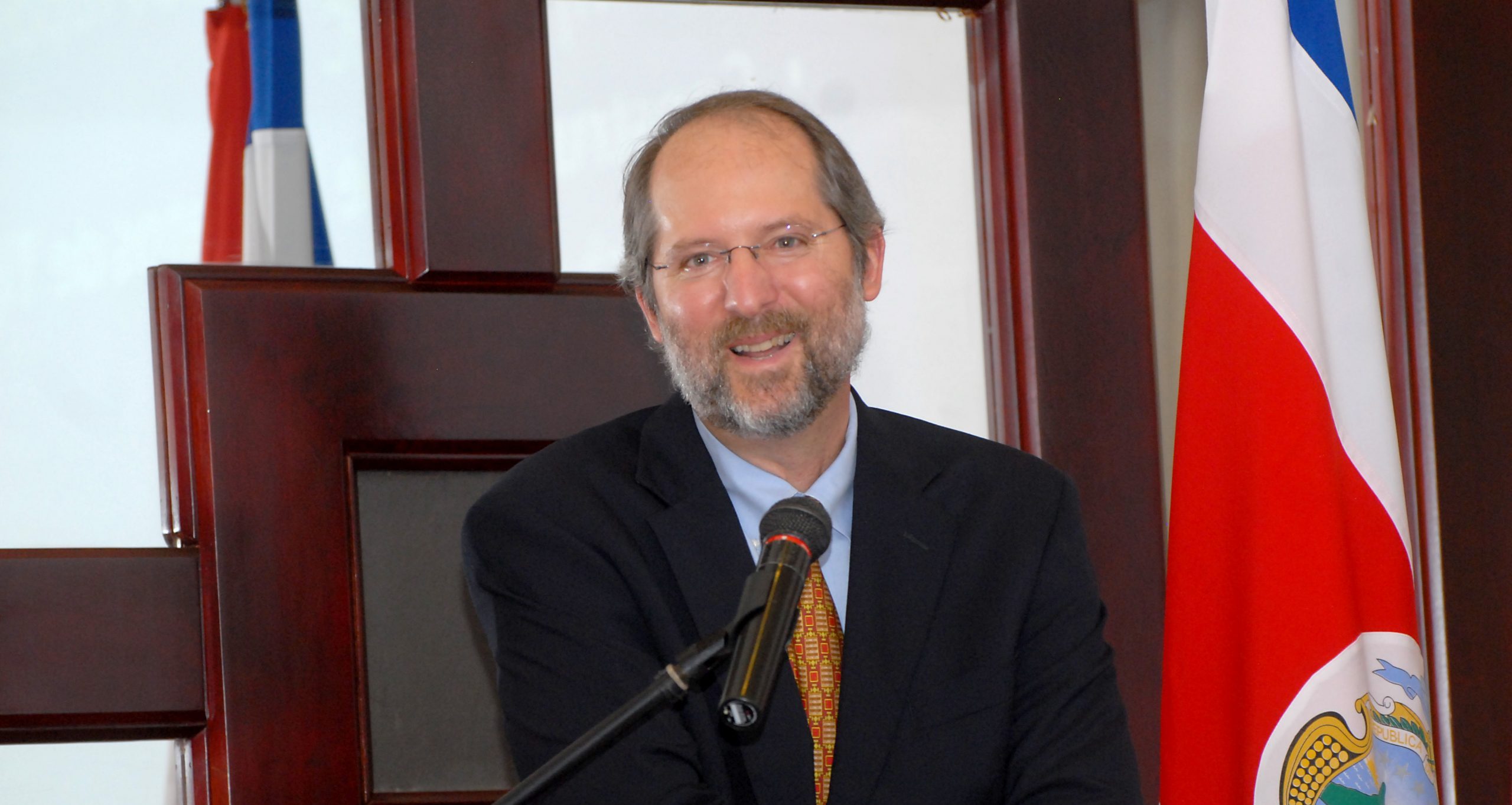UMBC has named Tim Gindling, professor of economics, the 2021 – 2022 Lipitz Professor of the College of Arts, Humanities, and Social Sciences (CAHSS). This endowed professorship celebrates, acknowledges, and sponsors cutting-edge research and teaching. This honor recognizes Gindling’s international leadership in research to support the capacity of developing economies to meet populations’ long-term needs. During the award year, he will move forward on collaborative research in Latin America and China.
“This is a prestigious award within the UMBC community,” shares Gindling. “I feel especially honored given the impressive accomplishments of previous Lipitz professors.”
Lipitz professors from the prior three years include Gloria Chuku, chair and professor of Africana Studies (2020-21); Jessica Berman, professor of English and director of the Dresher Center for the Humanities (2019-20); and Dan Bailey, a professor of visual arts who focuses on animation and interactive media (2018-19).
“This professorship will help Tim continue his research in wages, work, poverty, and income distribution in Latin America and East Asia,” says UMBC’s David Mitch, chair and professor of economics. “It brings to the forefront the importance of his research and its impact at an international level, which is in large part due to his ability to foster successful research collaborations.” This includes research partnerships in Costa Rica, El Salvador, Nicaragua, Colombia, Canada, China, and Taiwan.

Gindling will work on two main projects during his professorship. First, he will collaborate with the United Nations University World Institute for Development Economics Research (UNU-WIDER) in Helsinki, Finland on a global research project on informal work. Then, in spring 2022, he will return to China to continue a research collaboration on income inequality. There he will work with Linxiang Ye, a professor of economics and dean at the Nanjing University of Economics and Finance.
Transforming informal work
In 2019, Gindling was invited by UNU-WIDER to collaborate with them and Gary Fields from Cornell University to direct the project Transforming Informal Work and Livelihoods. They are gathering research from more than 25 developing economies from every region of the world on how workers who are self-employed, or who work for others as informal employees, access government-sponsored health care benefits and other worker protections. The team will publish a series of peer-reviewed papers on the research. They will also produce an edited volume on their findings, published by Oxford University Press in 2022, and co-edited by Gindling, Fields, and Kunal Sen, director of the UNU-WIDER, and others.
“The pandemic has highlighted the very difficult circumstances that informal workers face in their working lives,” shares Sen. “UNU-WIDER’s project ‘Transforming Informal Work and Livelihoods’ sheds light on the livelihoods of informal workers, and the prospects they have for moving to better jobs.”
Latin American economics
In addition to helping to direct the project, reviewing papers from researchers around the world, and co-editing the book project, Gindling has also co-authored three articles to contribute to the project.
One of the papers, “Heterogeneous informality in Costa Rica and Nicaragua,” has been submitted for publication in a special issue of the Journal of Development Studies. It was co-authored with Enrique Alaniz, an economist and research director at the Fundación Internacional para el Desafío Económico Global in Nicaragua, as well as UMBC international public policy doctoral students Catherine Mata M.A. ‘28, economics and Diego Rojas. Both are former researchers at the Institute of Research in Economic Sciences at the Universidad de Costa Rica.

“This project has been a great vehicle for me to apply what I have learned in my master’s and doctoral programs at UMBC,” says Mata. “I’ve worked closely with a senior researcher and participated in high-level conferences with experts in the field—valuable preparation for my own dissertation and later job search after graduation.”
Mata is also working on education research as a research assistant for Jane Lincove, associate professor of public policy. Rojas is currently a consultant for the Office of the Chief Economist for Latin America and the Caribbean at the World Bank.
The other two papers will be published in the book. “Transforming informal work and livelihoods in Costa Rica and Nicaragua” is co-authored by the same four researchers. “Self-employment and labour market dynamics of men and women in El Salvador and Nicaragua” is written by Gindling, Alaniz, and Alma Espino, a professor of economics and a researcher at the Universidad de la República Uruguay.
Global partnerships
Gindling’s work has garnered significant international recognition, which has, in turn, opened doors to more collaborative research opportunities. Gindling has been a non-resident senior research fellow at UNU-WIDER since 2019. For over a decade, he has been a research fellow at the Institute for the Study of Labor in Bonn, Germany. He has also worked at the Institute for Research in Economic Science at the University of Costa Rica for thirty-three years as a non-resident researcher, where he also served as a Fulbright U.S. Scholar in 1992 and again from 2001 to 2003.
In addition to his research and teaching, Gindling has also served as a research consultant to the World Bank, the International Labour Office, the Canadian International Development Research Centre, the United Nations Development Programme, the United States Agency for International Development (USAID), and the governments of Costa Rica and Honduras.
The World Bank published his book Toward More Efficient and Effective Public Social Spending in Central America in 2017. Gindling co-authored it with World Bank researchers Pablo Acosta, program leader for human development in Brazil; Rita Almeida, lead economist and human development program leader for Central America; and Christine Lao Pena, senior human development economist.
Economic effects of immigration policy
In addition to advancing international development economics, Gindling also studies the relationship between immigrants and education in the United States. As with his international projects, Gindling has joined forces with research partners to better understand the economic effects of U.S. immigration policy.
His policy brief “Private and Government Fiscal Costs and Benefits of the Maryland Dream Act” looked at how the Maryland Dream Act affects in-state tuition rates at Maryland state colleges and universities for undocumented immigrants. He co-authored this study with Marvin Mendel, emeritus professor of public policy and former director of UMBC’s Maryland Institute for Policy Analysis and Research.
Gindling received funding from the Spencer Foundation to expand the research nationally with Lisa Dickson, associate professor of economics at UMBC. He also worked with counselors at Northwest High School in Prince George’s County, Maryland, to assess how immigrant family separation affects students in the classroom. For that project, he partnered with Sara Poggio, associate professor of modern languages, linguistics, and intercultural communications, and founder and co-chair of the International Migration Section of the national Latin American Studies Association.
Advising future innovators
The lessons Gindling has learned through his international research and partnerships directly benefit his UMBC students. He has mentored and advised hundreds of students like Rojas and Mata, helping them build their careers, with a focus on innovatively addressing economic inequalities.
One of these students, Anna Gifty Opoku-Agyeman, M26, ‘19, mathematics, co-founded the first conference for Black women in economics: the Sadie T.M. Alexander Conference for Economics and Related Fields. The conference led her to co-found the Sadie Collective, the first non-profit focused on supporting Black women in economics, finance, data science, and policy at all phases of their careers. In 2020, the UN Convention on the Elimination of All Forms of Discrimination Against Women awarded Opoku-Agyeman a Women’s Rights Award in the Social Justice category. Previous recipients include U.S. Vice President Kamala Harris and Nancy Pelosi, Speaker of the U.S. House of Representatives. Opoku-Agyeman is currently a graduate student at the Harvard Kennedy School.

Gindling has great memories of advising Ruby Lu ‘94, economics and mentoring her as part of UMBC’s first cohort of McNair Summer Research scholars. Lu conducted research on discrimination against women and the wage gap between men and women in Taiwan. “At the time I was also conducting research on Taiwan and I shared my data with her for the project,” says Gindling, who has kept in touch with her since she left UMBC.
Lu earned a master’s degree in international economics at Johns Hopkins. In 2005, she co-founded the Beijing-based venture firm DCM China. In 2019, she started her own firm, Atypical Ventures, to fund “ambitious entrepreneurs who want to build lasting companies that have a positive impact on our society.” Her investment in China’s e-commerce, software, and healthcare industries has helped to grow companies and create over 300,000 skilled jobs.
Impact across UMBC
Since 1988, Gindling has also lent his support and expertise by serving on over twenty-five UMBC committees related to faculty searches and tenure, graduate and undergraduate admissions, and department and program needs in public policy, interdisciplinary studies, Africana studies, and global studies.
“The international scope of Tim’s work brings unique and important lessons in economics research and collaboration for UMBC students,” says Kimberly Moffitt, interim dean of CAHSS. “Students have applied this rigor and passion to create new paths in the field and support measures that can improve economic policy in developing countries through collaborative research. The Lipitz professorship celebrates his decades of dedication and his vision for economics at UMBC.”
Banner image: Tim Gindling. Photo courtesy of Gindling.
Tags: AfricanaStudies, CAHSS, cahssresearch, CS3, DresherCenter, Economics, English, International Stories, PublicPolicy

